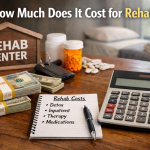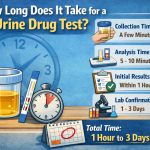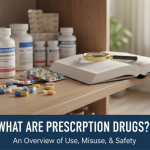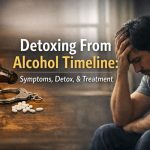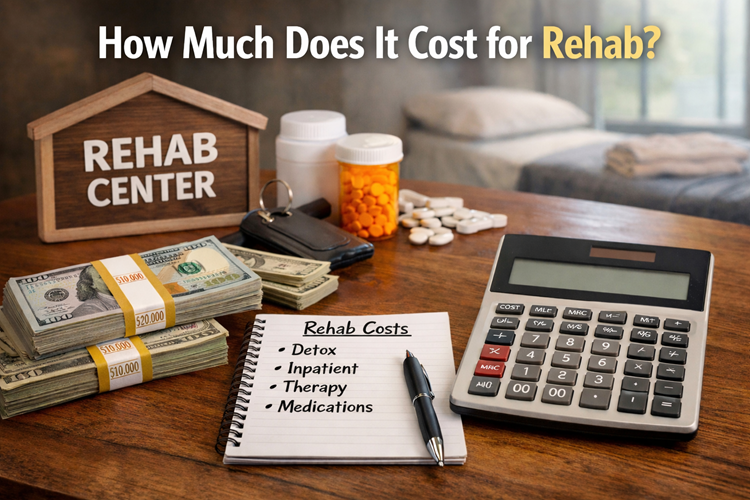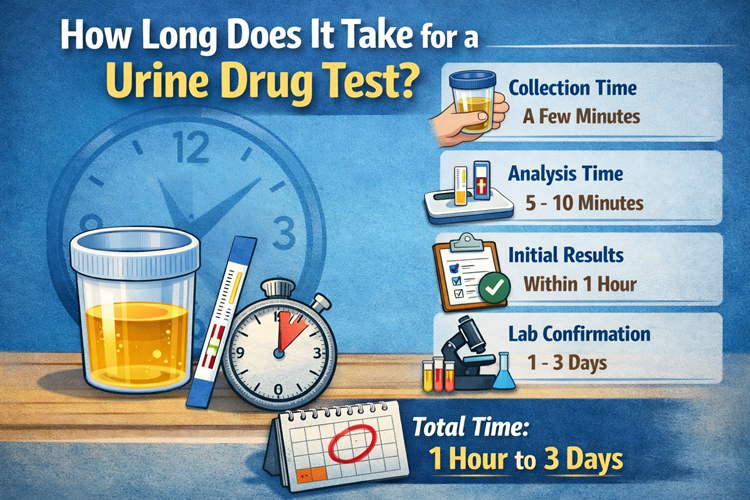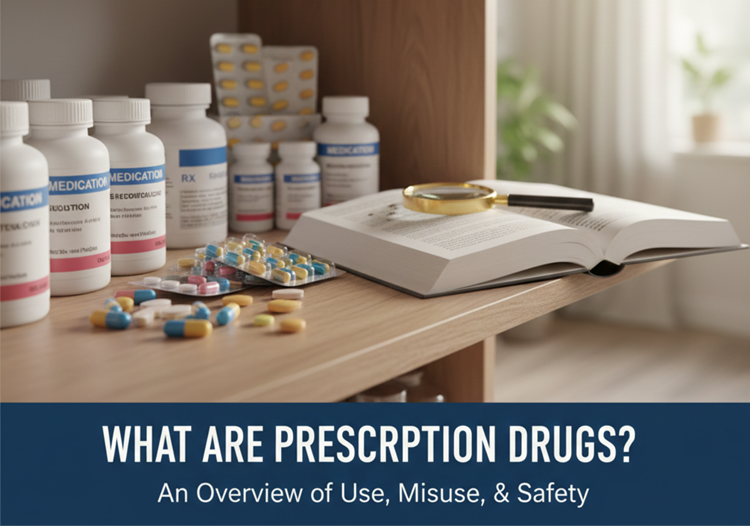Quitting cocaine when you’re addicted is no easy feat. The cravings hit hard, your mood swings all over the place, and your energy levels crash. Since cocaine is such a strong and addictive drug, that means it comes with withdrawal symptoms that can be difficult to avoid. If you or someone you love is trying to stop using cocaine, you might be wondering how long the withdrawal is going to last.
While everyone’s withdrawal experience is different, there are some things you can usually expect. To help you understand the process, we’ll cover the following in this article:
- What cocaine withdrawal is
- What symptoms you might experience
- How long cocaine withdrawal lasts
- How cocaine withdrawal is treated
- Where to find support for recovery
Whether it’s you or a loved one struggling with cocaine withdrawal or addiction, you’re not alone. The professionals at Solutions Healthcare can help you at any stage of your journey, whether you’re wanting to learn more about program options or you’re ready to schedule an intake appointment. We’re here to offer support at every step, so don’t hesitate to contact us when you feel ready.
What Is Cocaine Withdrawal?
Cocaine withdrawal occurs when someone who uses the drug regularly suddenly stops or cuts back on their use significantly. Since cocaine increases the amount of dopamine in the brain (the feel-good chemical), quitting the drug can create an imbalance, leading to a crash.
Unlike withdrawal from other substances—such as alcohol—cocaine withdrawal isn’t usually physically dangerous or life-threatening. However, it can still be extremely emotionally, mentally, and physically exhausting. Some people turn back to the drug simply because they want the symptoms to end, which is why it’s so important to have the right support system in place.
Common Cocaine Withdrawal Symptoms
Cocaine withdrawal symptoms can affect a person physically, emotionally, and behaviorally. Other than intense cravings, some of the symptoms that can make it difficult to function during withdrawal include:
Physical Symptoms
- Insomnia or sleeping excessively
- Muscle aches and nerve pain
- Increased hunger
- Slowed movements
- Restlessness and general unease (dysphoria)
- Fatigue and exhaustion
- Nausea and vomiting
- Tremors and chills
- Lack of energy
- Excessive sweating
Emotional Symptoms
- Anxiety
- Inability to feel pleasure
- Depression
- Unpredictable mood swings
- Difficulty focusing
- Trouble making decisions
- Vivid nightmares
- Suicidal ideation
- Extreme paranoia
Behavioral Symptoms
- Engaging in risky behaviors to get more cocaine
- Irritability or aggression
- Lack of motivation
- Avoiding friends, family, and other social settings
When you’re going through cocaine withdrawal, going about your life and completing your everyday responsibilities can be nearly impossible. Eventually, though, the symptoms will end, and you can emerge from the other side stronger and healthier.
100% Confidential Support is Available 24/7
No matter what you’re going through, you’re not alone. Our dedicated team is here to provide a safe, judgment-free space where you can talk openly and honestly. Whether you need emotional support, resources, or just someone to listen.
We’re here for you—completely confidential and always respectful of your privacy. Call us today!
What Does the Cocaine Withdrawal Timeline Look Like?
How long does cocaine withdrawal last? While there’s a relative timeline that symptoms tend to follow, the experience varies from person to person. Factors like how long you’ve been using, how much you were taking, how old you are, and how healthy you are overall can all affect the timeline. Despite the individual nuances, cocaine withdrawal typically happens in these three distinct phases:
Phase 1: Acute Withdrawal (1-2 Weeks)
Shortly after stopping cocaine use, you’ll experience a “crash,” which includes symptoms like fatigue, irritability, and restlessness. The strong cravings will set in, and it may be challenging to sleep. Depression and anxiety can be common side effects and, in rarer cases, suicidal thoughts.
Phase 2: Post-Acute Withdrawal (2+ Weeks)
This phase is also known as post-acute withdrawal syndrome (PAWS). At this point, your body will be so exhausted from the withdrawal symptoms that you’ll likely sleep for long periods at a time. Cravings will be persistent, and while the mood swings will continue, they may become more unpredictable. Along with cravings for the drug, you may also be hungry much more often than usual.
Phase 3: Prolonged Withdrawal (Weeks to Months)
For weeks and even months after the initial withdrawal symptoms end, you may continue to feel sluggish. You might have a hard time feeling excited about anything, and urges to use cocaine will still pop up every now and then, especially in the face of stress or other personal triggers.
Since everyone’s journey looks different, it’s essential to stick with your treatment plan even if your symptoms improve early. Being mindful of lingering cravings and the challenge of responding to triggers can help you stay on track toward long-term recovery.
Contact Solutions Healthcare
Battling with Drug and Alcohol Addition? Remember, you are not alone and we are here to help you!
Treatment for Cocaine Withdrawal
There are several ways to manage cocaine withdrawal symptoms. Here are some of the most effective treatment options:
Medical Detox
Since withdrawal symptoms can be intense, having medical professionals to monitor your progress can help prevent complications. Medical detox provides a safe, comfortable place for you to rid your body of the drug. These programs also offer emergency support and other strategies for symptom management, which can reduce your discomfort and lower the risk of relapse.
Therapy
Therapy is an important part of the treatment process because it helps you understand the reasons behind your cocaine addiction. Group counseling, cognitive behavioral therapy (CBT), relapse prevention, and family therapy are all popular options for learning more about yourself and adopting effective coping skills. By addressing the causes of your addiction, you can develop healthier thoughts that support your recovery.
Medications
While there aren’t any FDA-approved medications specially for cocaine withdrawal, other medicines can help manage symptoms like depression, anxiety, insomnia, and more. Antidepressants, sleep aids, and mood stabilizers can be prescribed to help regulate your mood swings, regulate your cravings, and allow you to sleep better at night.
Sober Lifestyle
Once the withdrawal period ends, you’ll need to take steps to stay sober for the long run. Some ways to stay successful include joining a support group, making healthy lifestyle changes, and identifying and avoiding your triggers. Combining multiple aftercare treatments can give you the best shot at lasting recovery.
Finding Support for Cocaine Addiction
One of the best things you can do for yourself if you’re facing a cocaine addiction is reaching out for help. At Solutions Healthcare, our team understands how difficult cocaine withdrawal can be. That’s why we’re equipped with all the tools and resources to support you or your loved one through the recovery process. Contact us at any time to verify your insurance coverage, ask questions, or learn more about the right treatment program for your needs.







